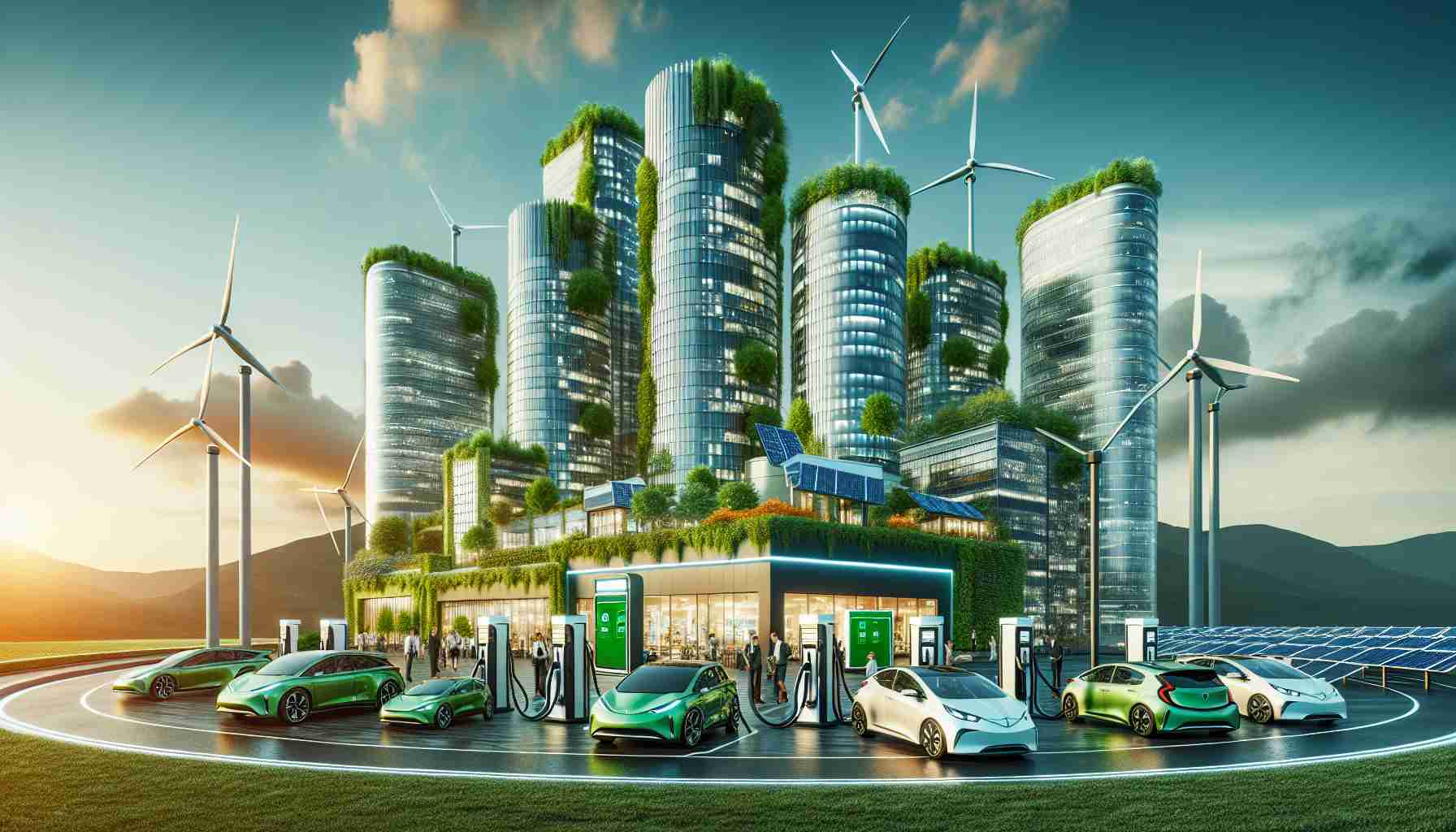Corporate Power Purchase Agreements Surge Amid Sustainability Efforts
In a remarkable shift towards sustainability, companies across various sectors are increasingly turning to green energy solutions. This transition is especially pressing for tech titans like Google and Microsoft, driven by their soaring energy demands propelled by Artificial Intelligence (AI).
According to BloombergNEF, the global market for Corporate Power Purchase Agreements (PPAs) is seeing unprecedented growth, with around 33.9 gigawatts of signed agreements reported in 2024 by October. These deals, where firms secure renewable energy from sources like wind and solar, are set to surpass the total of 46 gigawatts established in 2023, marking a record eighth consecutive year.
Despite anticipated political shifts in the United States that may challenge environmental initiatives, the country remains a leader in PPAs with 116 gigawatts announced since 2015, accounting for over half of the global capacity. Meanwhile, regions like Europe, the Middle East, and Africa are stepping up, signing 11.5 gigawatts of agreements this year, showcasing a growing commitment to renewable energy.
As businesses strive to align with the Paris Agreement’s goal of net-zero emissions by mid-century, they also aim to stabilize energy costs. The Corporate Sustainability Reporting Directive in the EU prompts companies to disclose energy consumption data, further pushing the green energy agenda.
Looking ahead, diversification in energy sourcing is expected, with companies exploring innovative arrangements that include battery storage and underutilized energy sources like nuclear and geothermal power. Google and Microsoft are already making strides, securing 1.3 gigawatts of nuclear energy for their operations, showcasing their dual focus on energy demand and sustainability.
Corporate Power Purchase Agreements: The Future of Green Energy
In an era marked by a pressing need for sustainable practices, Corporate Power Purchase Agreements (PPAs) are becoming a pivotal strategy for businesses aiming to secure renewable energy. This surge in PPAs is particularly significant among large tech companies such as Google and Microsoft, heightened by their increasing energy requirements, especially with the rise of Artificial Intelligence (AI).
Key Features of Corporate PPAs
1. Renewable Solutions: PPAs allow companies to purchase renewable energy directly from producers, predominantly from solar and wind farms.
2. Cost Stability: These agreements help businesses stabilize energy costs against the volatility of traditional energy markets.
3. Sustainability Goals: Many corporations are committing to the Paris Agreement’s target of achieving net-zero emissions by 2050, driving demand for renewable energy.
4. Transparency Regulations: The Corporate Sustainability Reporting Directive in the EU mandates firms to report their energy consumption, which enhances accountability and pushes for greener practices.
Current Market Insights
According to BloombergNEF, the global market saw a significant uptick in renewable energy agreements, with 33.9 gigawatts signed in 2024 as of October. This represents a strong upward trajectory, expected to surpass 46 gigawatts established in 2023, marking the eighth year of consecutive growth in this sector.
Despite potential challenges in policy regarding environmental initiatives in the United States, the country still dominates the market with over 116 gigawatts of announcements since 2015. Meanwhile, Europe, the Middle East, and Africa are rapidly catching up, securing 11.5 gigawatts of agreements in the current year.
Pros and Cons of Corporate PPAs
Pros
– Predictable Pricing: Firms can anticipate energy costs, hedging against future price hikes.
– Flexibility in Sourcing: Companies can diversify their energy portfolios, tapping into various renewable resources.
– Enhanced Brand Value: Committing to sustainability can improve corporate image and attract environmentally conscious consumers.
Cons
– Long-Term Commitments: PPAs usually involve long-term contracts that may limit flexibility in changing energy strategies.
– Initial Investment: There may be high upfront costs associated with transitioning to renewable infrastructure.
– Dependency on Suppliers: Companies might face challenges if suppliers encounter operational issues, affecting the supply of energy.
Use Cases of Corporate PPAs
– Tech Companies: Google and Microsoft have implemented PPAs not only to meet their expansive commercial energy needs but also to support their sustainability agendas.
– Manufacturing Industries: Firms are increasingly entering into agreements to reduce their carbon footprints and meet regulatory requirements.
– Retail Giants: Many retailers are harnessing PPAs to power their operations with clean energy, enhancing their corporate social responsibility initiatives.
Future Trends and Innovations
The market is expected to see innovative energy sourcing strategies emerging. Companies are increasingly exploring combinations of energy generation and storage solutions, including:
– Battery Storage: Enhances the reliability of renewable energy by storing excess power for later use.
– Advanced Technologies: Firms are looking into integrating AI and IoT to optimize energy usage and predict consumption patterns.
Additionally, companies like Google and Microsoft have started securing nuclear energy contracts, exemplifying an evolved energy strategy that includes diversified sources for sustainability.
Conclusion
Corporate Power Purchase Agreements represent a transformative approach to energy sourcing, with profound implications for sustainability efforts across various sectors. As more companies commit to green energy solutions, the landscape of corporate energy procurement will continue to evolve, underpinned by innovations that seek to balance demand with environmental responsibility.
For further insights into sustainable energy practices, visit Bloomberg.
